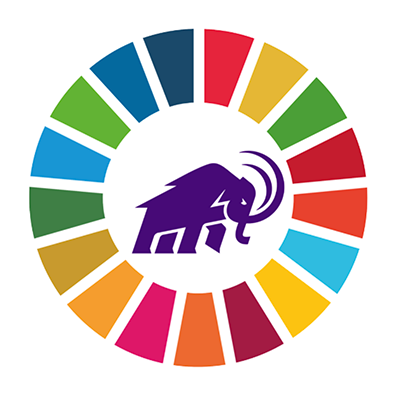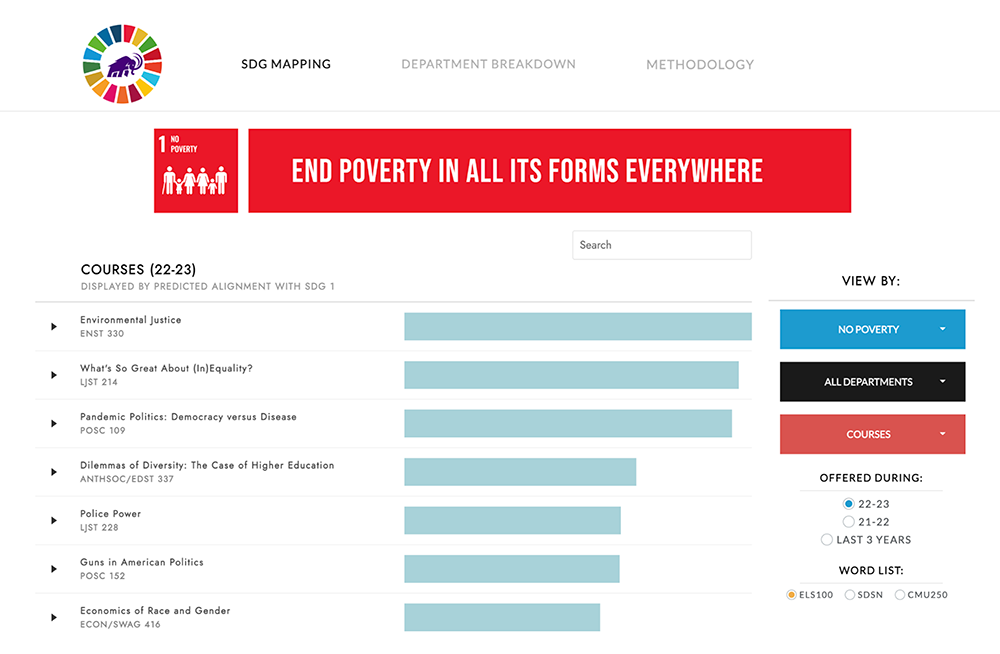
Over the past few weeks, our team of six fellows - led by fearless leaders, Wes and Margot - have been working to jumpstart the Office of Sustainability after finally ending the office’s 2-year hiatus this winter. Although there have been many obstacles encountered along the way, my experience working here has been one of the all-time highlights of my Amherst experience.
General Reflections
Working at the Office of Sustainability has shown me first-hand how interconnected sustainability-related work has to be. Developing sustainable-minded policies requires working with all stakeholders in our community. As a result, we encounter countless opportunities to collaborate with peers, faculty, staff, administration, and partners beyond campus boundaries. In my short time working as the Sustainability Assessment fellow, I’ve had the opportunity to work on a wide range of projects with a diverse group of collaborators. For example:
- I developed an app to help students reimagine our course catalog in terms of the United Nations’ Sustainable Development Goals framework. Wes and I are now partnering with the Director of the Center for Teaching and Learning, Riley Caldwell-O’Keefe, to discuss how we can use the platform to promote interdisciplinary, sustainability-oriented learning
- I collaborated with Parker (Office of Sustainability Food Systems Fellow) and Joe Flueckiger (Manager of Dining Services) to propose a committee that increases the breadth and depth of stakeholder engagement in our campus food system. In my other position as the social media manager for dining services, I’ve also collaborated with the Office of Sustainability to help promote sustainable dining practices on social media.
- I’m working with the Association of Amherst Students to enhance continuity across generations of students by building a public database for AAS-funded projects. Our goal is to document all past and ongoing work in sustainability, to facilitate collaboration across campus stakeholders, and to inspire future generations of students to engage in sustainability-related projects. The project is an extension of the dashboard I built to document all sustainability-related projects for the Office of Sustainability.

STARS Report & Building My Interactive Course Catalog Tool
I initially started the year off working on an institution-wide assessment called the Sustainability Tracking, Assessment & Rating System (STARS). When Amherst became an institutional member of AASHE in 2019, the college committed to filing the STARS Report every three years. The STARS Report now holds 680 colleges and universities around the world accountable for reporting progress on a wide range of sustainability metrics. The report assesses performance in campus operations, community engagement, academics, and governance using concrete measurable benchmarks. These range from goals in energy and waste reduction, to pay equity, campus procurement, food system policies and more.
My first task at the Office of Sustainability involved conducting an internal analysis of the college to prepare us for Amherst’s next STARS Report. A major component of STARS uses the United Nations’ Sustainable Development Goals (SDGs) as a guiding framework for assessing sustainability-related opportunities in course curriculum and faculty research. This ultimately inspired me to develop a platform that reimagines our course catalog through a more interdisciplinary lens.
Some background info:
To date, a total of 193 countries have adopted the 17 UN Sustainable Development Goals (SDGs) as part of a global call to action for all countries to promote prosperity while protecting the planet. These goals address key systemic barriers to sustainable development, including unsustainable consumption patterns, inequality, weak institutional capacity, and environmental degradation. In doing so, the SDGs recognize that achieving equitable and sustainable outcomes must go hand-in-hand with strategies that promote high-quality education, health care, governance, and climate resilience.
I created this app to identify pathways at the college that prepare students with the knowledge, skills, and values necessary for developing a greener, stronger, and more inclusive society. In terms of the methodology, I used R to code the app and scraped the last three years' worth of courses from Amherst's course catalog. I then generated SDG-specific scores for each course description based on 3 weighted keyword lists provided by Elsevier, SDSN, and Carnegie Mellon University. Although there is no guarantee that the automated coding system will always capture every course that is relevant to a particular area, I hope this platform will encourage students to use these categories and their basic underlying principles as a framework for mapping their paths at Amherst and beyond.
